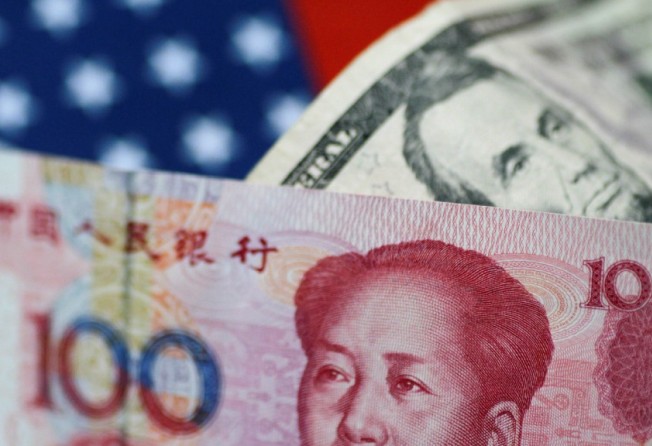Central bank official says China keen to promote use of yuan in commodity pricing
Beijing studying ‘market rules and mechanisms to meet demand from investors’ deputy head of monetary policy committee says

China is keen to raise the profile of its currency in the pricing of commodities, according to a central bank official.
The country is studying the “market rules and mechanisms of pricing commodities in yuan [to] satisfy demand from domestic and overseas investors,” Pan Hongsheng, deputy secretary general of the People’s Bank of China’s monetary policy committee, was quoted as saying by the official China Securities Journal.
Pan’s comments, made on Monday at an international oil and gas conference in Hangzhou, capital of eastern China’s Zhejiang province, came as China is about to launch a yuan-denominated crude oil futures contract in Shanghai that has been almost seven years in the planning.
The contract, which would be the first to be priced in the Chinese currency, would give China a greater say in the pricing of crude traded in Asia and be a step forward for Beijing in its bid to unseat the US dollar as the de facto commodity trading currency.
Given China’s leading role in the trade of many commodities, the country had “good economic foundations and conditions” for more of them to be priced in yuan, Pan said.
China is the world’s largest importer of crude oil, iron ore and other raw materials. The more than one billion metric tonnes of iron ore it bought last year represented more than half of the global seaborne trade.
Having more commodities priced in yuan would be beneficial for China not only in terms of giving it more pricing power, but also as it seeks to build an effective foreign exchange mechanism for the currency, according to a local analyst.
“Such a move would diversify trading entities and increase yuan products to pave the way for a more market-oriented exchange rate mechanism,” Zhang Jun, chief economist at Morgan Stanley Huaxin Securities in Shanghai, said.
“It would help domestic firms to manage forex risks and would also boost the internationalisation of the yuan.”
However, while Beijing would love to see the yuan replace the US dollar in commodity trading, that is unlikely to happen any time soon, Zhang said.
“It wouldn’t weaken the dollar’s dominance in the short term,” he said.
The primary position the US dollar has in the global monetary system is partly built on its widespread use in the pricing of commodities, which provides Washington with the leverage to influence countries that rely on exports of such goods. It is a position that Beijing would like to usurp.
China is once again trying to boost the yuan’s global profile on the back of its appreciation against the dollar this year. After major losses in 2016, the yuan gained 2 per cent against the greenback in August alone.